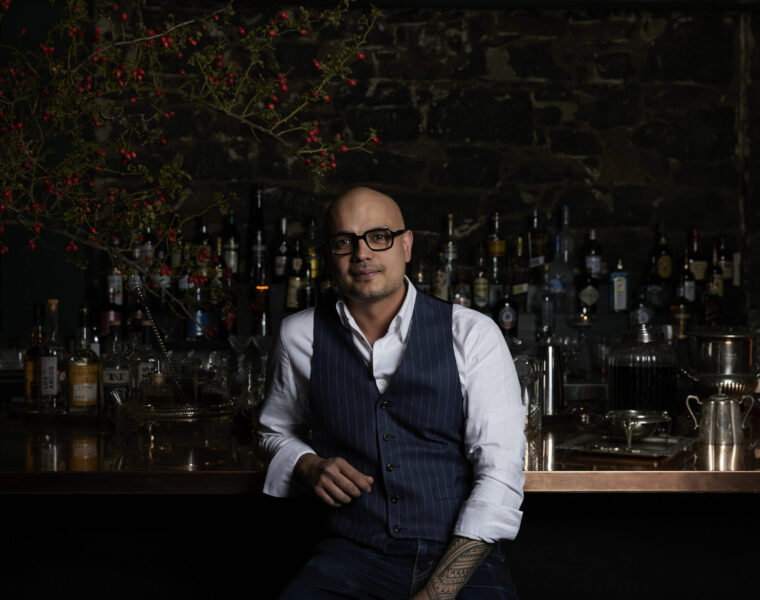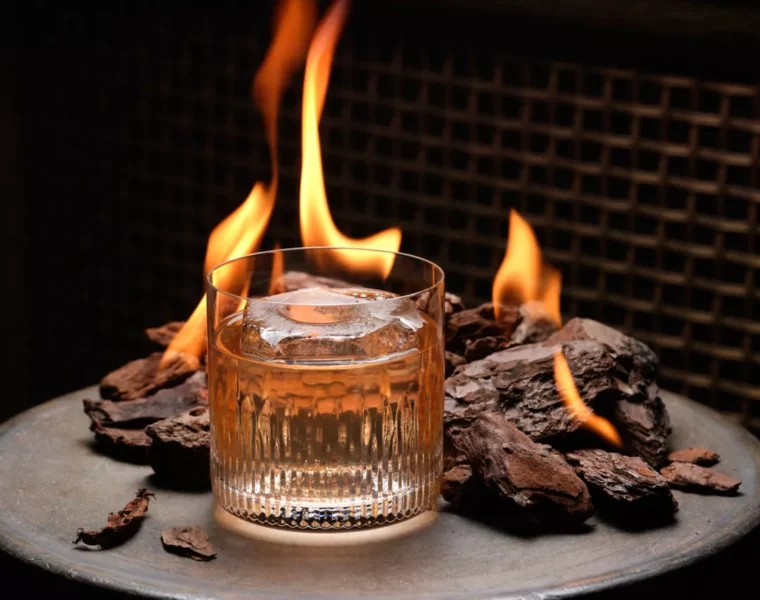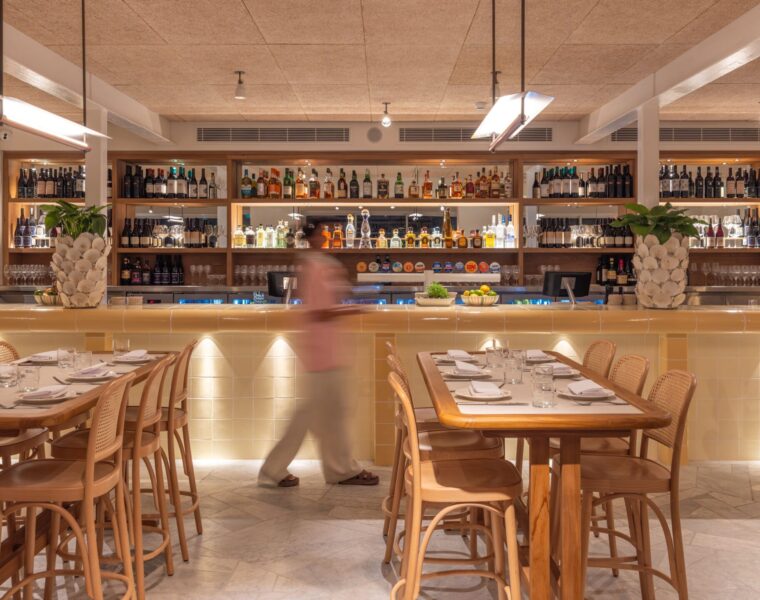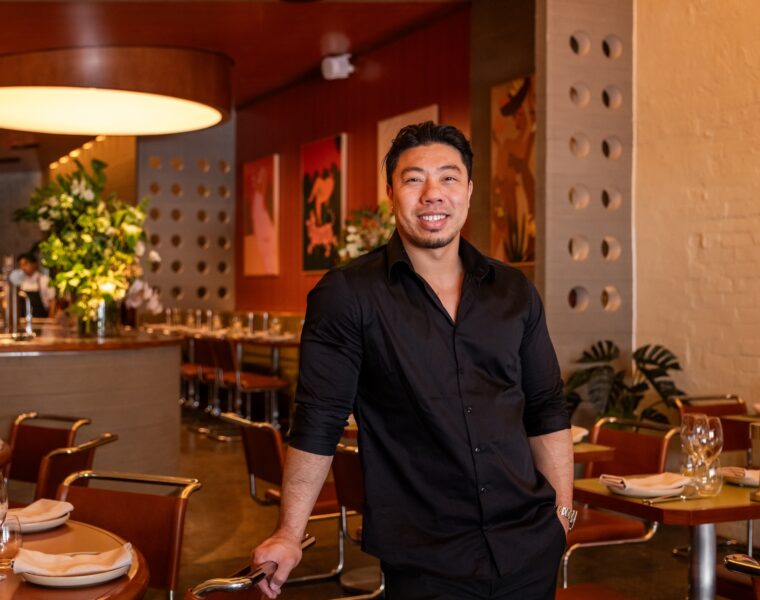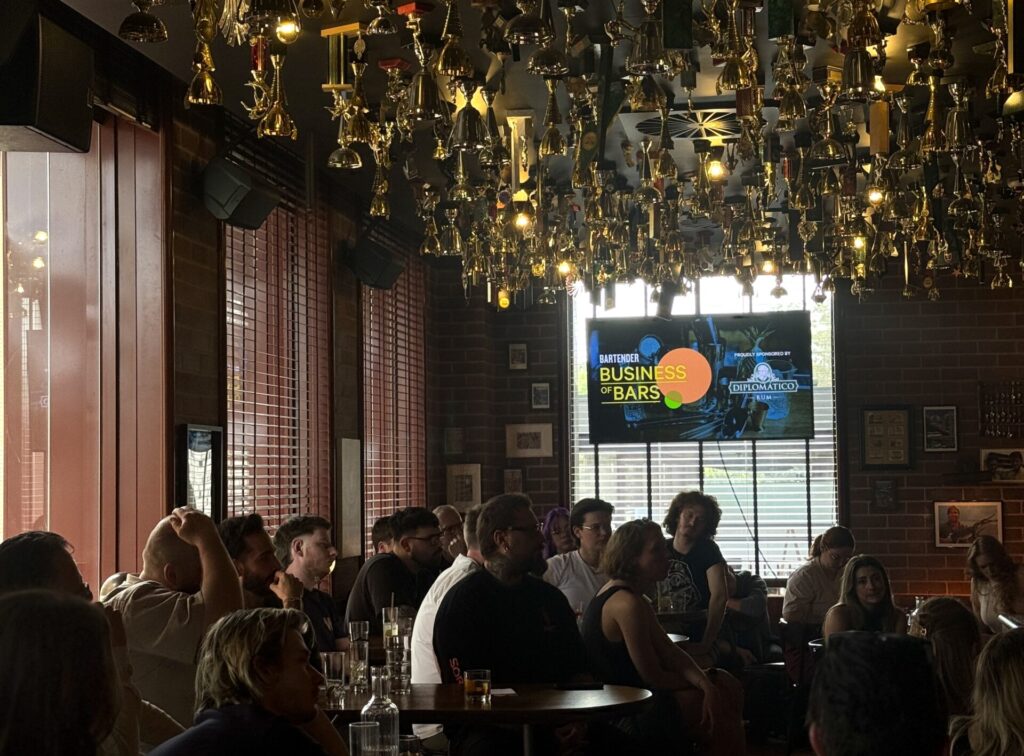
This year’s Business of Bars, sponsored by Dimplomático Rum, featured an outstanding line-up of industry leaders sharing their experiences and insights on how to build your business and personal brands.
Any Means Necessary
From competition circuits and collaborations to media presence and mentorship, Esper Hospitality Group bar manager, Alissa Gabriel, and Old Loves general manager, Callum Marra, brought their depth of experience to the room for a rich discussion on the strategies and mindsets that helped raise their profiles and open doors.
As a young New Zealander, Marra began his career by devouring every scrap of knowledge he could find. Books, trade magazines, even the labels on bottles polished during slow shifts became sources of education.
“I was the guy who would show up at every core range tasting, stick around after to talk to the reps, and spend my nights off sitting at the bar asking questions,” he said.
Marra explained how growing up in New Zealand’s smaller bar scene brought both challenges and opportunities.
“In a small pond, responsibility arrives quickly. You’re the one writing the cocktail list because no one else will. It’s terrifying, but it forces you to rise to the occasion. Then when I moved to Sydney about three and a half years ago, it was similarly daunting. It felt like stepping up to first grade rugby. The lights are brighter, the pressure’s heavier. But in the end, you’re playing the same game, just on a different stage: a bar, a guest, and a drink,” he said.
The conversation moved onto mentors and the role they had played in their career. Gabriel mentioned Mark Hickey, the national Spirits Academy manager for Spirits Platform, as one of her first and ongoing mentors, but added some of the best mentorship she had was bad mentorship.
“I’ve had more awful managers than I’ve had great mentors, and I think if you are in that position, it’s important to find positivity – a terrible experience gives you the opportunity to learn what you don’t want to be and then taking that forward to the people you work with,” Gabriel said.
Marra shared a lesson from one of his mentors about the “$7 difference”.
“He talked about being a beer drinker, and that he could buy a case and drink it at home or have the same beer at a venue for around $7 more. His message was as a bartender you’re not selling a beer; you’re selling $7 worth of value to that customer.
“Every time you come into work, you should be trying to create $7 worth of value for every person in front of you, whether that’s the music that’s playing, the service that you get, how comfortable the seats are, how nice the fit out is. If you can come in every day and do that, your business will always be busy, and you will always be successful. I learnt that about six months into my first job and it has never left me,” he said.
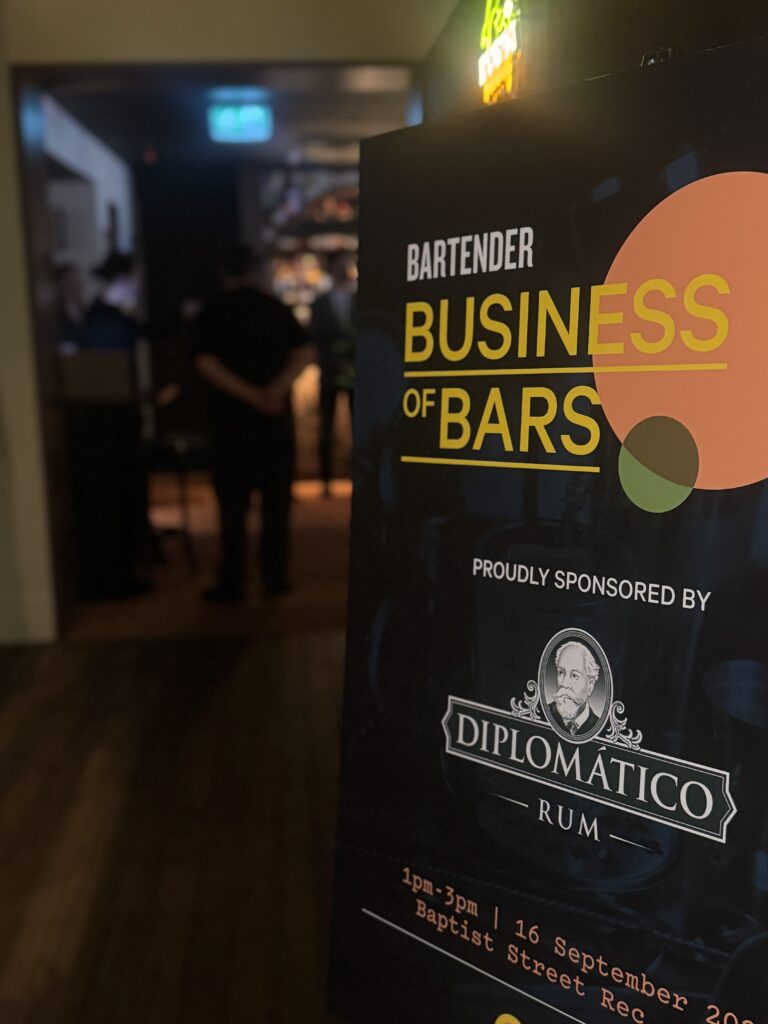
Do it your way
The next panel featured Jason Williams from House Made Hospitality, Daisy Tulley, The Mucho Group, and George Curtis, Milquetoast and Before + After. Each represented a different size and scale of business, providing real insight into different strategies, setbacks, and turning points along the way.
House Made Hospitality has 17 venues and reached that size quickly. Williams explained that the business partners created the company and wanted it to make money, so they set a trajectory to do so. It ended up going faster than anticipated because an attractive venue came up that they couldn’t ignore.
The company now has more than 600 employees across a diverse range of venue types.
For Tulley and The Mucho Group, growth has been much more considered and achieved without accumulating debt. Tulley said she knows all the staff by name and the importance that has for the group and the type of culture it wants the company to have.
For Curtis, the motivation to shift from one bar to two was venue driven. When he and his partners saw the empty garage, they knew it was the right home for Milquetoast – even if getting the building up to scratch was a painstaking process.
A common thread for all on the panel, irrespective of size, was the importance of looking after your employees by creating and maintaining safe workplaces. All agreed that for the industry to advance, and attract more people, that was critical.


